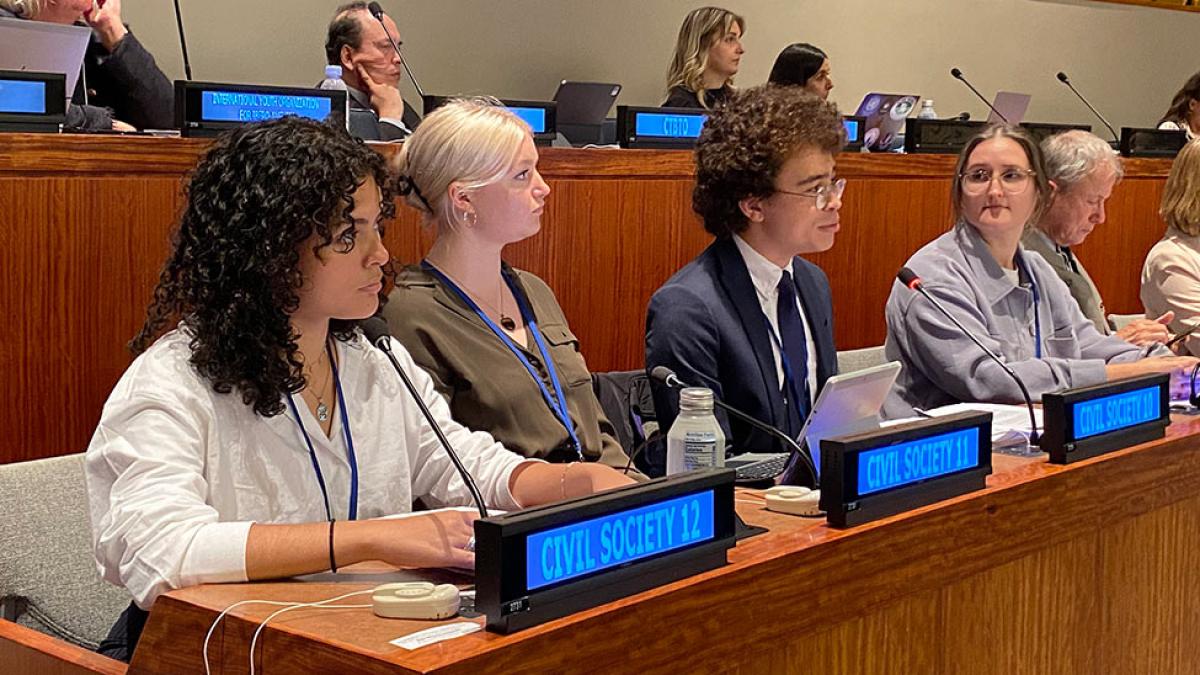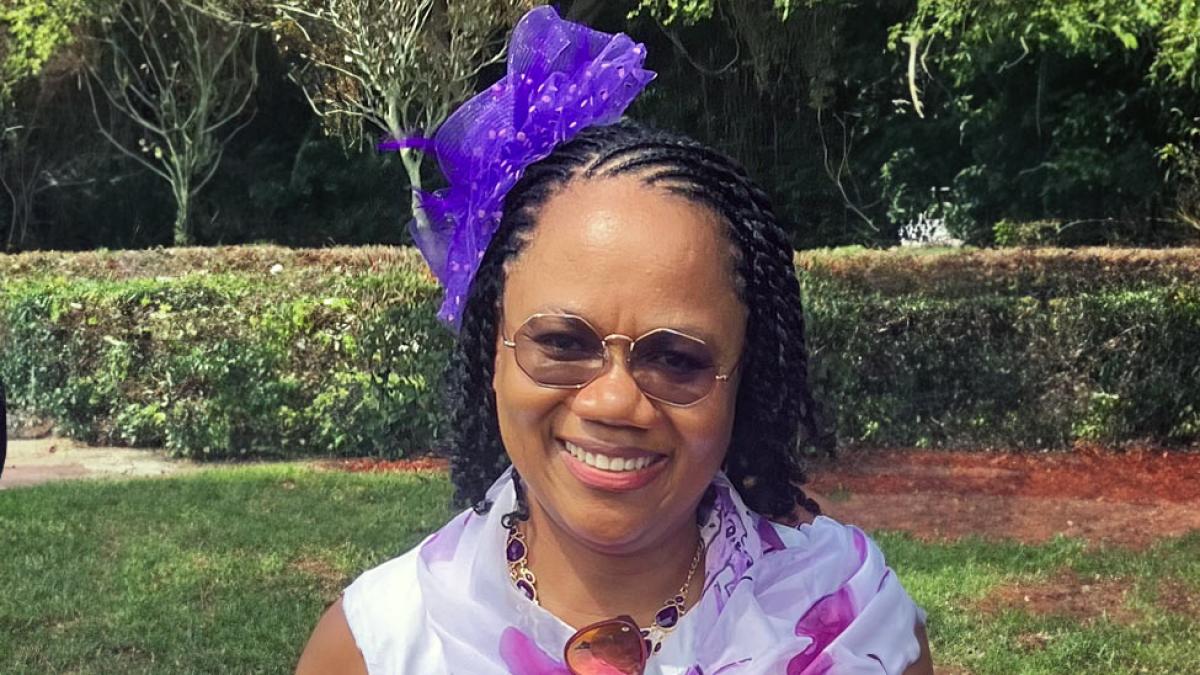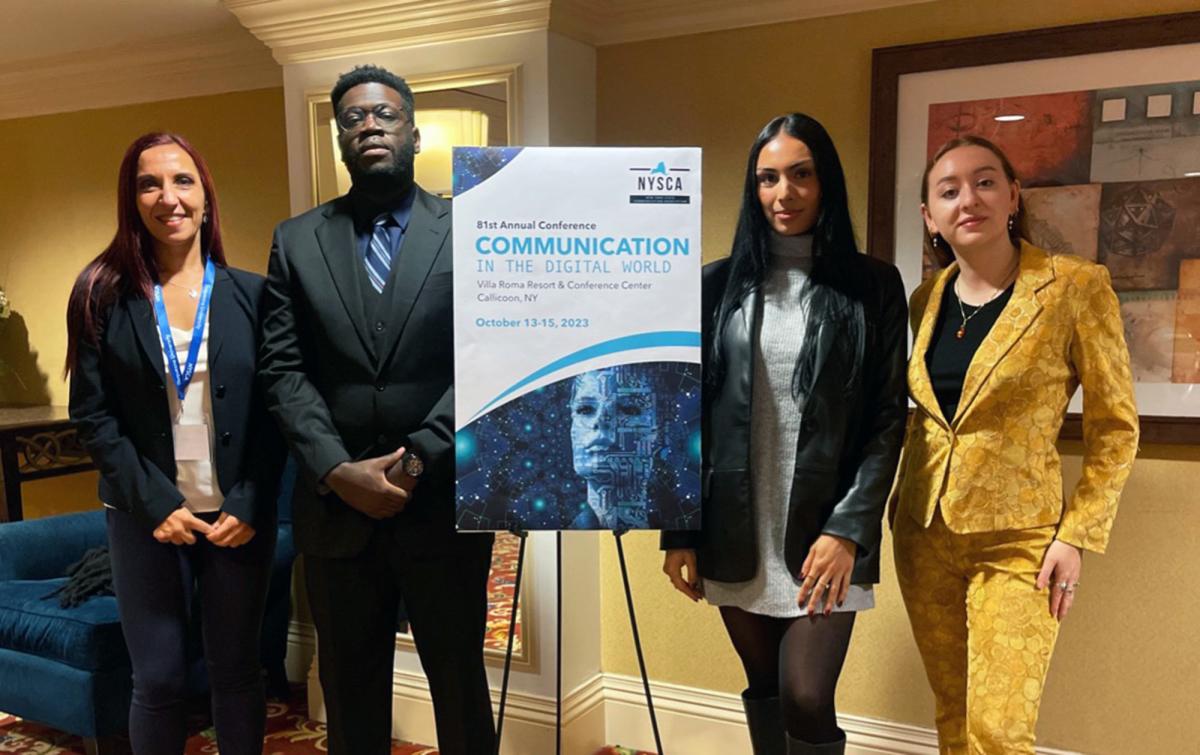
Medical Payments Coverage (MedPay)
Dyson Professor Sheying Chen speaks with WalletHub about medical payments coverage.
Early Voter Turnout Better Than Expected In Westchester
Pace University political science professor Kerriann Stout said local officials decide what infrastructure is repaired, how much funding is provided to schools, police and DPW's. "If you care about how fast 911 responds or care about where your water comes from or who is picking up your trash," said Stout.
Marsha on the Move: PaceDoc’s For the Love of Food
I recently had the incredible pleasure of watching a short film that was produced by a group of students at Pace University through a program called PaceDocs (including my friend Jerry McKinstry, Assistant Vice President of Public Affairs at Pace and, in this case, adult student, who introduced me to the film). The documentary For the Love of Food showcased the slow food movement – farm to table – in France and in Westchester. It makes the case for sustainability, and slow cooking and dining. The experience of watching this film, which showcases the most delectable ingredients and results, was sheer pleasure to the eyes, as well as my palette (well, in my imagination).
Military Times Names Pace University One of Nation's Best Schools for Veterans
For the third consecutive year, Military Times has named Pace University to its list of best schools for military service members and veterans.
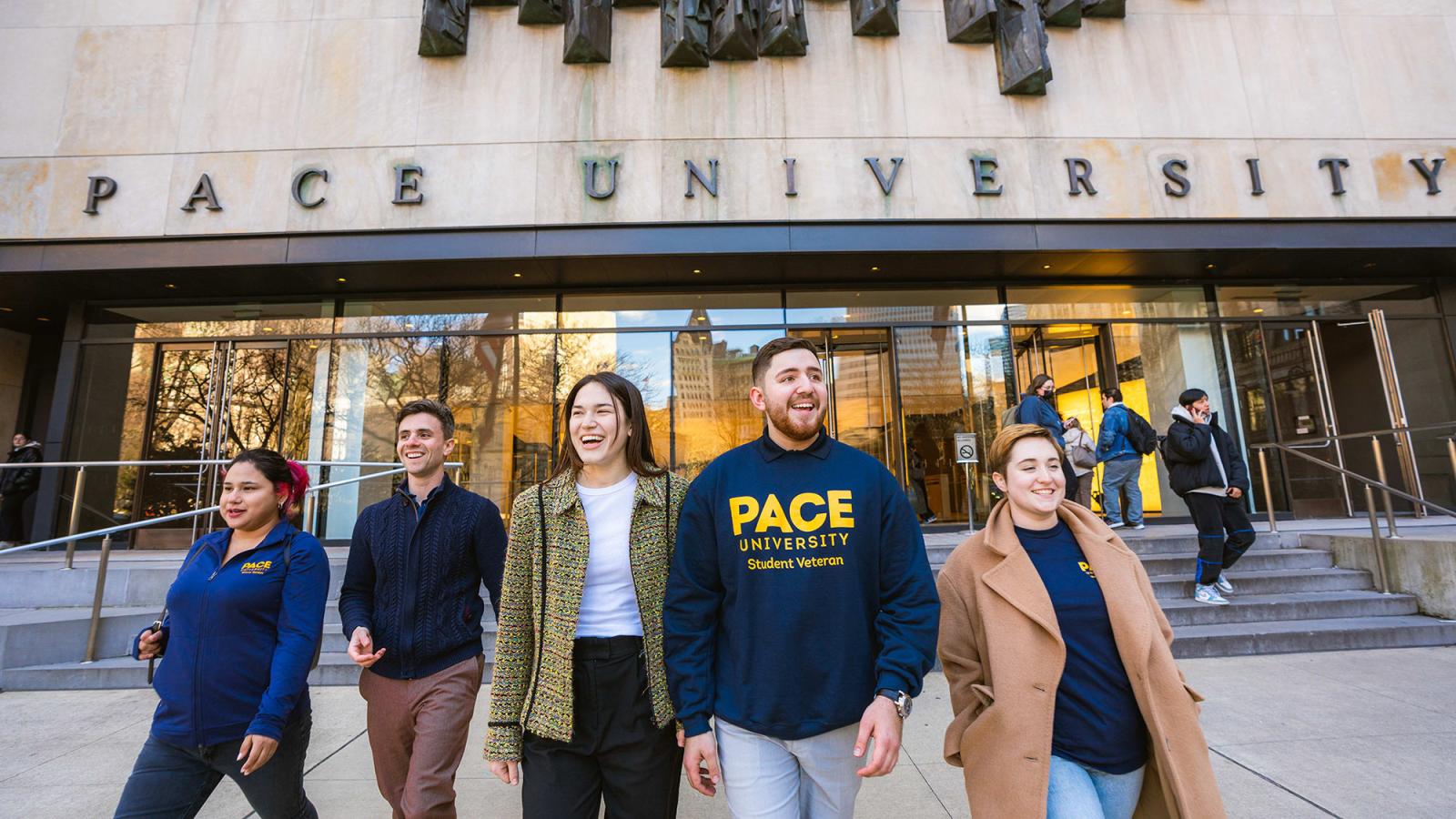
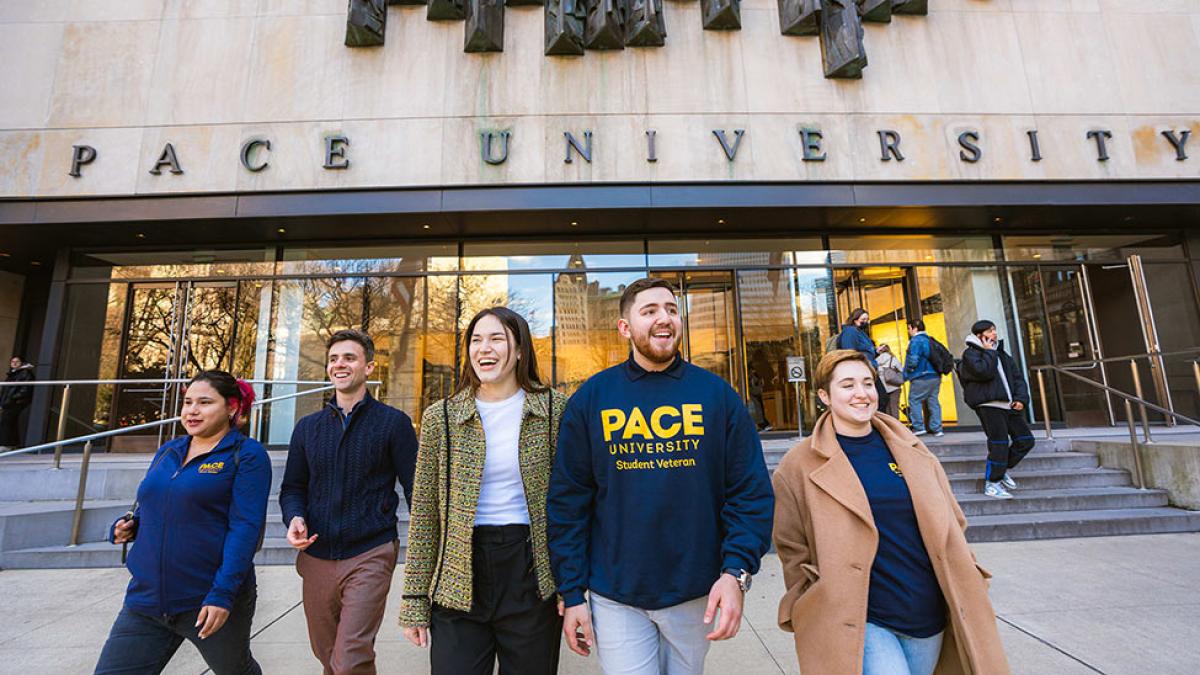
Pace University Ranks Third in New York State
For the third consecutive year, Military Times has named Pace University to its list of best schools for military service members and veterans.
In being named to the 2023 Best for Vets: Colleges rankings, Pace placed third out of 29 institutions state-wide, ninth among private colleges nationwide, and 66 overall.
The ranking is an affirmation of the impact of Pace’s efforts in fostering a welcoming environment for all military veterans and assisting them in reaching their educational goals. It continues Pace’s recent upward trajectory as the university went from 287 to 124 in 2022.
“We are deeply committed to supporting the student veterans at Pace University, and so it’s a real honor to be recognized for that work by Military Times,” said Pace President Marvin Krislov. “More than 200 of our students, across all three of our campuses, have volunteered to serve in America’s armed forces. They are a special and valued part of our community, and we’re pleased that they chose to pursue their education with us. We’re grateful for their service, and for this recognition.”
This year, 325 schools made the list – up nearly 5% over last year. Student success metrics – notably, GPA, retention, persistence, and graduation rates -- were the most important factors in determining the ranking of schools on the list, followed closely by the range of military-specific resources and the level of financial assistance offered. Admissions and registration policies, human resources and assorted miscellaneous considerations also factor into the scoring rubric.
“Student veterans contribute to the diversity and campus life here at Pace University,” said COL (Ret) Peter Riley, director of Pace Office of Veterans Services. “Hard work, authentic student care, accountability, and a heartfelt commitment to achieving success pays off. I am proud of this recognition and the awareness of what we provide for this important population of students.”
Pace recognizes the commitment our veterans have demonstrated to our country and are firmly committed to assisting veterans, active duty, and reserve service members in advancing their careers through higher education. Pace provides specialized and support services to over 200 veterans and dependents across its three campuses.
Pace’s special services for veterans include:
- Academic resources such as tutoring and professional writing assistance
- A specialized “University 101 for Veterans,” introductory course meant to address the experiences of veterans in higher education
- Counseling and disability services
- Financial assistance such as the Yellow Ribbon Program, Veteran Tuition Scholarship Program, Army Tuition Assistance & Air Force Tuition Assistance program
- Career services
- A website, Veterans, which lists resources specifically for veterans
- An active Pace Student Veteran Association, a chapter to the national Student Veterans of America organization
The university also offers a Veteran Student Center on both the New York City and Pleasantville campuses. The center serves as a one-stop resource center providing a study and gathering space where Pace student veterans and dependents can connect with others who have served and those who want to support them.
Neath Williams '24 spent over 20 years as a Navy combat medic on active duty and in the reserves before enrolling. Now he’s working on his Master of Arts in Communications and Digital Media through the robust online program Pace offers and is active in the Arts and Veterans communities in and around New York City.
“Student veterans have a holistic view of the importance of their education,” said Williams. “Most have goals set for after school, and they’re focused on that. They may be more focused on learning the actual content rather than on passing the class. This is the stuff we came here for, and Pace provides the resources for us to be successful.”
To view the full rankings visit the 2023 rankings.
About Pace University
Since 1906, Pace University has been transforming the lives of its diverse students—academically, professionally, and socioeconomically. With campuses in New York City and Westchester County, Pace offers bachelor, master, and doctoral degree programs to 13,600 students in its College of Health Professions, Dyson College of Arts and Sciences, Elisabeth Haub School of Law, Lubin School of Business, Sands College of Performing Arts, School of Education, and Seidenberg School of Computer Science and Information Systems.
About Military Times
The Military Times is the trusted source for independent news and information for service members and their families. The military community relies on Air Force Times, Army Times, Marine Corps Times, and Navy Times for reporting on everything important to their lives, including branch-specific news, pay, benefits, finance, education, health care, recreational resources, retirement, promotions, product reviews, and entertainment. Military Times is owned by Sightline Media Group. To learn more, visit the Military Times.
Grad Students Represent Pace, Bring Home Awards at New York State Communications Association Conference
Students in the Communications and Digital Media graduate program were selected to present their timely, culturally relevant research projects at the prestigious New York State Communication Association Conference this fall. Two groups received awards for the conferences’ best graduate papers.
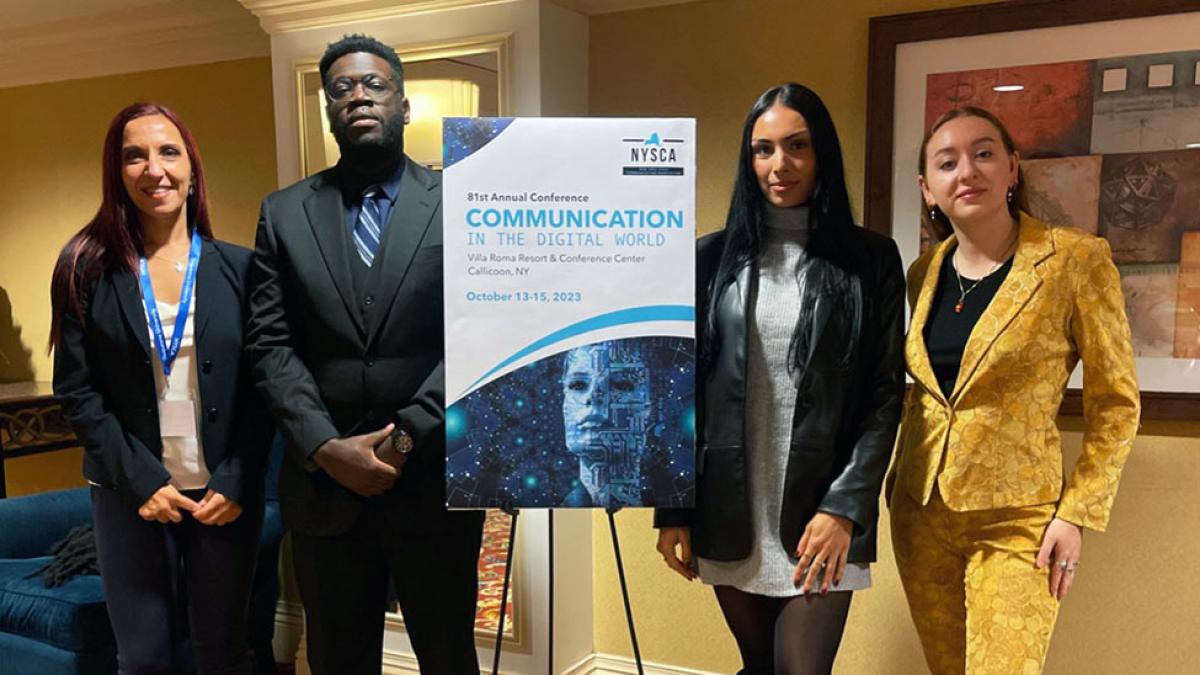
Last spring, five student groups from the Communications Research course, part of the Communications and Digital Media graduate program, completed timely, thoughtful research studies with topics ranging from the impact of communication on romantic relationships to how social media influencers impact consumer decisions. This fall, all five groups were accepted to present their work at the New York State Communication Association Conference, and two received awards for first- and second-place graduate papers.

“The research students have done in my class was quite demanding and it was far from easy going through all the stages of it: from selecting a topic, to identifying an appropriate method of research, to obtaining an institutional review board (IRB) approval, collecting survey data, to analyzing the data,” said Associate Professor of Media, Communications, and Visual Arts Mirjana Pantic, PhD, who teaches the course. “It was fulfilling to see how our students' accomplishments stood out among other prominent schools in New York State.”
Three students who attended the conference to present their groups’ work shared their experiences.
Erin Flynn ’23, MA Communications and Digital Media
Research Project: Social Media Influencers: Impact on Consumer Purchasing Decisions (First Place Graduate Paper)
How did your group decide on this topic?
A vital point to keep in mind when developing a research topic is looking for a gap within existing research so you’re contributing something constructive. The value of authenticity among social media influencers can be difficult to gauge, so being able to explain consumers’ motivations and quantify such interactions, like making purchases, is unbelievably beneficial to the marketing industry. I work within the social media landscape as a digital content producer, so I’ve become fascinated by what causes engagement behaviors within an online audience.
What do you hope attendees at the conference take away from your research?
Our research has demonstrated how a message, packaged by a social media influencer in an entertaining and informative way, has the capability to powerfully impact a wide spectrum of people (all of whom are potential consumers) but when it comes down to it, the majority desire an authentic, human connection to inform their decisions.
How has this graduate program and/or this research project impacted your goals for the future?
A major goal of mine is to produce larger scale media projects with a focus on effective storytelling. During my time within the Communications and Digital Media graduate program, I’ve gained indispensable insight that I’ve been able to instantly apply to real-world situations, thus taking theory and transforming it into practice. Now that I’ve added more essential skills to my repertoire, I look forward to developing exciting projects that offer new awareness for untold narratives to amplify under-represented voices.
Brianna Civitano ’23, MA Communications and Digital Media
Research Project: Motivations and Consumption of Streaming Services: Millennials and Generation Z (Second Place Graduate Paper)
What do you hope attendees at the conference took away from your research?

I hope the attendees learn more about the younger generations and why we do some of the things we do. I briefly touched on some generational characteristics found in the literature review we studied, but the biggest takeaway is that we now live in a fast-paced world where accessibility and convenience play a major role in everything we do. This is why the younger generations prefer to use streaming services. We can choose what we want to be entertained by whenever we want. It molds perfectly into our lifestyle.
How has this graduate program and this research project impacted your goals for the future?
This program is my future. I joined it because I had a change in career path after undergrad, and since the start of the program, so many opportunities have come my way. I never expected to complete a research study let alone submit it to a conference and have the paper win second overall for graduate papers in the state. Presenting it in front of a group of professionals and networking with them was just the icing on the cake because this is only the beginning for me. I plan to take everything I have learned and use it in the work field post-graduation. I actually see myself using bits of it every day; it’s really coming full circle.
What was your experience like at the conference?
The older I get, the more I want to expand my comfort zone and this experience did just that. Old me would’ve thought of every excuse to get out of presenting, but I couldn’t be more grateful for following through with attending and presenting in front of so many successful people. I was able to speak with like-minded individuals and have very educational and informative conversations that I normally wouldn’t have. Not only was this conference an educational success, but it was also a personal growth success as well.
Samuel Aikins ’23, MA Communications and Digital Media
Research Project: America's Trust in the Electoral System: How Party Affiliation and Media Consumption Affect Electoral Trust
What was the most surprising or interesting thing you learned in your research?
Learning about the role that the media played in determining how American citizens view their elections was one of the more interesting parts of our research. The results of our research showed that social media had the largest presence [in terms of where people get their news] but had the least amount of people trusting in the elections. I found that interesting considering how much social media is a strong part of our society these days, but at the same time, there's a lot of misinformation that is spread on social media. So, in some ways, it makes sense why people who use social media to gain news may not always be trusting of what they see or hear.
What do you hope attendees at the conference take away from your research?
My hope is that attendees understand why it's important for us to trust our elections and our institutions. Despite some of the results of our research, I do believe that it's important to trust our elections and our institutions for the sake of democracy. Right now, we are in uncharted territories when it comes to election trust. As we've seen, more and more people believe that elections are not faithful or that elections such as the 2020 elections were false and stolen. There are people in power who have and will use their power to undermine our democracy, and that's very concerning. As someone who cares about our country and our freedoms, it worries me the direction that we're going as a country, where civil rights are under threat, where women's reproductive rights are under threat, where our voting rights and our right to our freedom are under threat. I hope that our research can start a conversation and get people to believe in our elections and our institutions once again.
How has this graduate program and/or this research project impacted your goals for the future?
This graduate program has really taught me a lot about communications and production. I graduated with my bachelor's in political science and a minor in English from the University of Massachusetts in Lowell in 2019. My original goal was to work in immigration law, but once I started working at WGBH, which is my local PBS station in Boston, that's when my love for communications and production started. I started getting training from one of our associate producers, and from there, I made the decision to go back to school and pursue my master’s in communications and digital media so that I can take that next step in my career and really begin my career in communications and production.
Dyson Digital Digest: Fall 2023
This past summer, Clinical Assistant Professor of Art Derek Stroup, MFA, and Katie Romanyshyn ‘25, Film and Screen Studies, engaged in a faculty-student collaboration through the Amelia A. Gould Assistantship that expanded both of their creative boundaries and artistic possibilities in the most unexpected of ways.
Clinical Assistant Professor of Mathematics Analee Miranda, PhD, invited students to explore applied mathematics in a unique hands-on way—building a radar model as a summer research project.
On Wednesday, October 11, Political Science and Peace and Justice Studies students Ellis Clay ‘25, Antje Hipkins ’24, and Jasmine Cintron Soto ’25 delivered statements to the United Nations General Assembly First Committee, a forum focused on global disarmament and international security.
Business Experience and Beyond
When Lubin student Akshata Swami '24 sees an opportunity, she goes after it—and it shows. Not only is she on the e-board for Pace University's chapter of Beta Alpha Psi, but she also traveled with the organization to Las Vegas, attended an exclusive investor summit, and spent a week in India with Lubin peers and other students from around the world. As a Pace Go Getter, Akshata is clearly setting herself up for success as she gets ready to head into her final semester with Lubin.
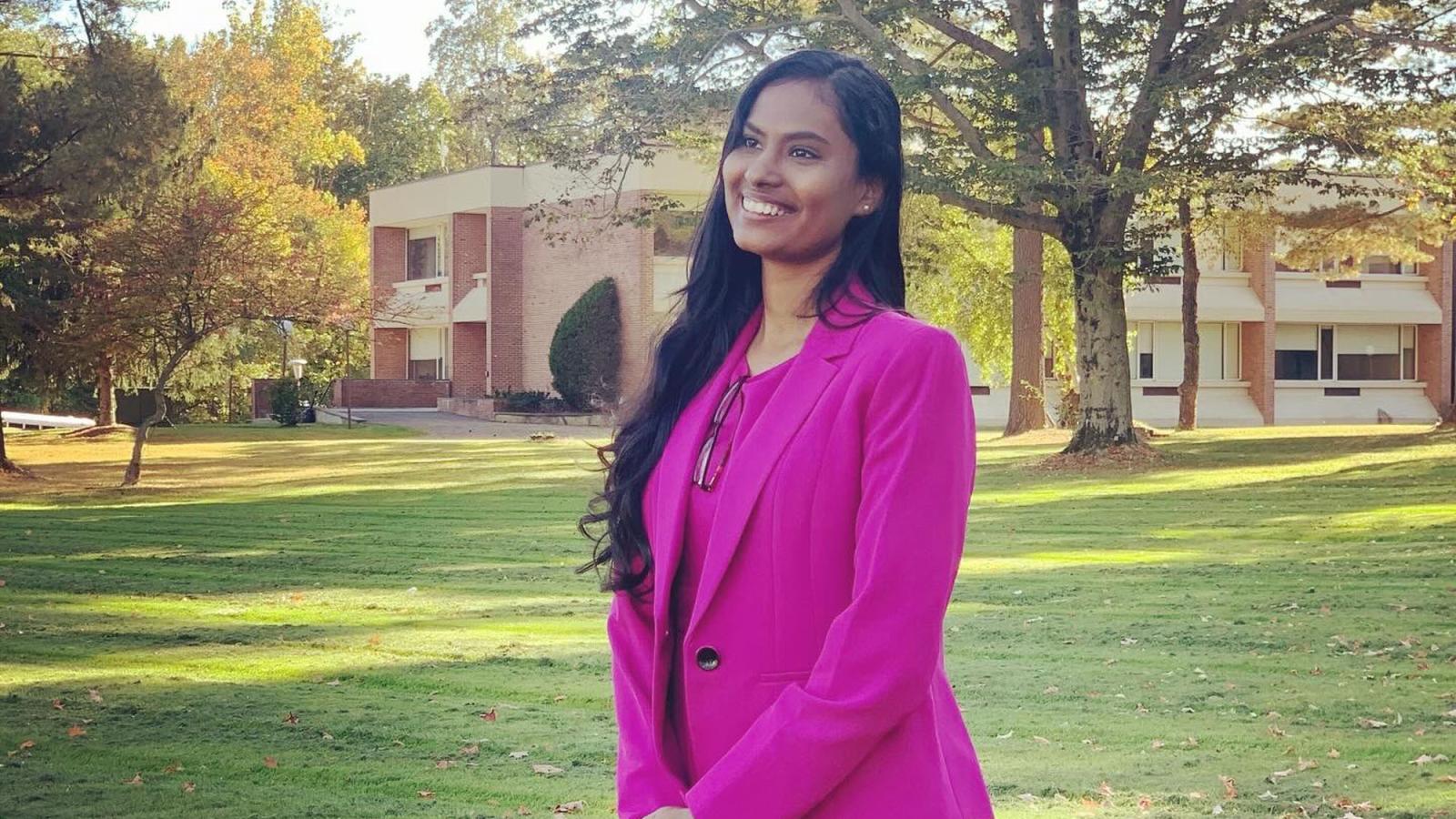
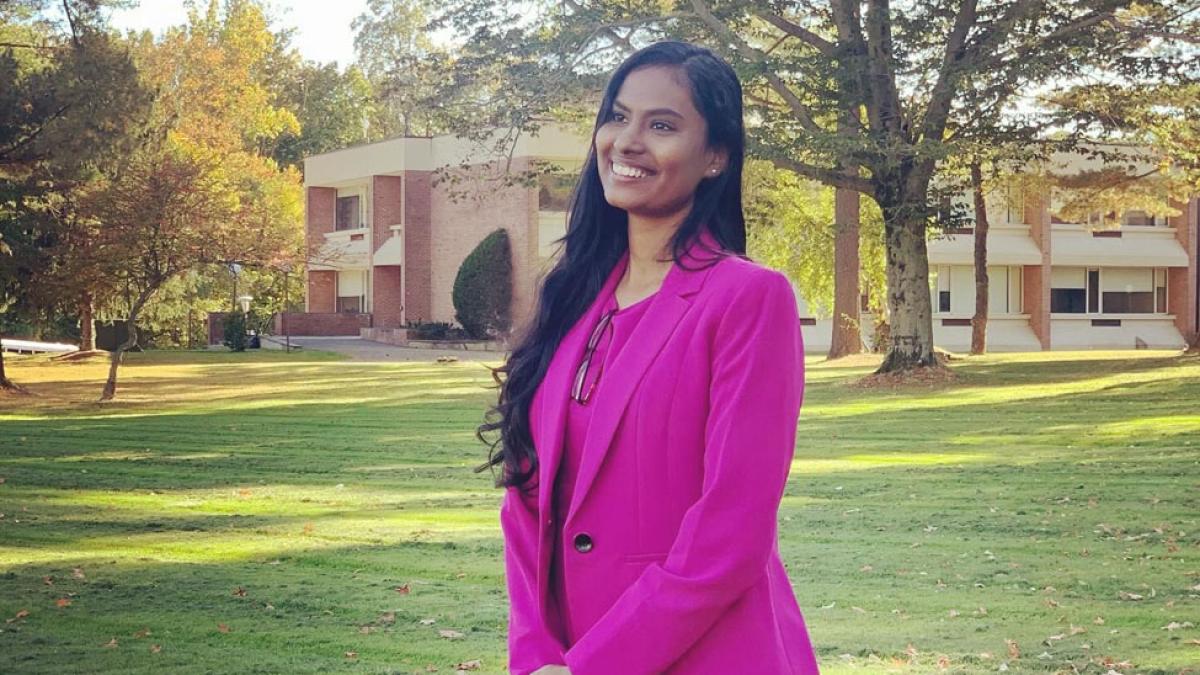
Akshata Swami
Business Analyst, Imperium Consulting Group
Class of 2024
MBA in Business Analytics
Member Of: Beta Alpha Psi (Chairman of Graduate Division)
Pronouns: She/Her
When Akshata Swami sees an opportunity, she goes after it—and it shows. Not only is she on the e-board for Pace University's chapter of Beta Alpha Psi, but she also traveled with the organization to Las Vegas, attended an exclusive investor summit, and spent a week in India with Lubin peers and other students from around the world. As a Pace Go Getter, Akshata is clearly setting herself up for success as she gets ready to head into her final semester with Lubin.
Why did you choose Pace University and the Lubin School of Business?
I selected Pace University and the Lubin School of Business as my choice for pursuing an MBA for several reasons. Situated in the vibrant heart of New York City, Pace University provides access to exceptional resources and a robust alumni network, which was important to me. The accreditation of the MBA program and the opportunities that Lubin provides are world-class. Pace University's MBA graduates enjoy worldwide recognition, which was a significant factor in my decision.
How have clubs on campus helped enrich your student experience?
I joined Beta Alpha Psi in 2022 and currently serve as the Chairman of Graduate Division on the executive board, spearheading and planning events. I am also part of First Gen. I have had the opportunity to meet top employers and recruiting teams through BAP. I was also the recipient of the Janetschek Professional Growth Scholarship, which allowed me to travel to Las Vegas and participate in a case consulting competition with BAP. This experience has added value to my MBA journey as BAP is a nationally recognized business honors society.
As a first-generation student in my family, I embarked on a journey to pursue an MBA in the United States. Pace University became my guiding light during my first year, offering unwavering support and guidance. What struck me most was the inclusive and diverse environment of the Lubin School of Business, which made me feel right at home.
Tell us a bit about being an international student at Pace
As a first-generation student in my family, I embarked on a journey to pursue an MBA in the United States. Pace University became my guiding light during my first year, offering unwavering support and guidance. What struck me most was the inclusive and diverse environment of the Lubin School of Business, which made me feel right at home.
Throughout my academic journey, I have found a network of support from my professors, the Career Services team, and the International Student Services (ISS) team. They consistently prioritized the needs of international students like me and were readily available to address any questions or concerns.
I have cultivated a close relationship with the Career Services team, who have been instrumental in my exploration of the US job market. They've gone above and beyond by organizing corporate visits and connecting us with potential employers, ensuring that we have the best opportunities to succeed in our careers. Their support has been invaluable in my international education journey at Pace University and the Lubin School of Business
Over the summer, you attended the Indian Institute of Management (IIM) Shillong International Week with Lubin. Why was it important for you to take advantage of this opportunity?
The Indian Institute of Management schools are esteemed institutions for management studies, both nationally and globally. Growing up, I dreamt of joining an IIM in India, and this dream became a reality, thanks to the pivotal role that Pace University played in my journey. I am grateful to Pace for giving me this once-in-a-lifetime opportunity.
During my time at IIM Shillong, I had the incredible privilege of participating in International Week, which was a transformative experience. This event brought together students from various nationalities and allowed me to interact with industrialists and professors from diverse universities. Their guidance and knowledge continue to shape and influence my career today.
The rich network of friends and colleagues I've developed is a priceless asset that I cherish, and it wouldn't have been possible without the support and opportunities provided by Pace University's Lubin School of Business. I extend my heartfelt gratitude to them for making my dreams a reality and for enriching my life in immeasurable ways.
You were a recent recipient of the Janetschek Professional Growth Scholarship to attend the Beta Alpha Psi Project Run With It case competition in Las Vegas. How did you learn about the Janetschek Fund?
I was fortunate to be one of two students selected to receive the Janetschek Fund scholarship. This scholarship enabled me to attend the annual BAP meeting in Las Vegas and participate in the Project Run With It case study. During the event, my team and I had the opportunity to tackle a real-life case consulting issue for a non-profit organization, competing against ten other teams. My introduction to the Janetschek Fund came through my faculty advisor for BAP.
How can the Janetschek Fund help students succeed outside of the classroom?
The Janetschek Professional Growth Fund provides financial support to qualified Lubin undergraduate and graduate students seeking business-related development beyond their academic programs. It motivates students to pursue and explore various fields and certifications, including skills training, credential preparation, and related co-curricular education and activities that develop professional competencies complementing their program of study.
What motivated you to attend the CNBC Delivering Alpha Investor summit? How has the summit impact you and your time in the classroom?
My motivation to attend the CNBC Delivering Alpha Investor Summit was driven by my deep interest in the finance world and industry. This summit is widely recognized as one of the most significant and exclusive events organized by CNBC, drawing some of the most prominent figures in the finance world. It presented a unique opportunity for me to gain invaluable insights and network with key players in the industry. The impact of attending this summit on my academic experience has been profound. The knowledge and perspectives I gained from industry leaders have enriched my understanding of finance, which I've been able to bring into the classroom. This real-world exposure has allowed me to connect theoretical concepts with practical applications, making my education at Pace University more dynamic and relevant.
What has been your favorite opportunity at Pace?
My most cherished opportunity at Pace has been the privilege of giving back to the University by serving as a Graduate Intern for the Dean's Office. This role has allowed me to foster a deeper connection with the University as I work internally within Pace. It has been immensely rewarding to be involved in organizing and planning events while applying my academic and technical skills to contribute to the University's success. This experience has not only enhanced my personal and professional growth but also reinforced my sense of belonging within the Pace community.
Do you have any advice for other Lubin students?
Never underestimate the power of networking and attending events. Joining clubs and actively participating in university-sponsored events can be a game-changer for your academic and professional journey. Pace University puts a lot of effort into designing and planning events tailored to students, so be sure to take full advantage of these opportunities.
Additionally, make Handshake your go-to app for everything related to career development and job opportunities. It's a powerful resource that can open doors to internships, job placements, and more. By actively engaging with the Pace community and utilizing tools like Handshake, you can maximize your college experience and set yourself up for future success.
What does #LubinLife mean to you?
#LubinLife holds a special place in my heart because it signifies more than just my academic journey. It's a holistic experience that blends the joy of being on campus, forging meaningful connections with peers and mentors, and immersing myself in a community that fosters personal and professional growth. It's about relishing the moments in and out of the classroom, appreciating the vibrant campus environment, and feeling a deep sense of belonging. Ultimately, #LubinLife embodies the pursuit of knowledge and dreams and the cultivation of lasting memories that will accompany me throughout my life.
Connect with Akshata:
On the Radar: Analee Miranda, PhD, Engages Students in Hands-On Math Research
Clinical Assistant Professor of Mathematics Analee Miranda, PhD, invited students to explore applied mathematics in a unique hands-on way—building a radar model as a summer research project.
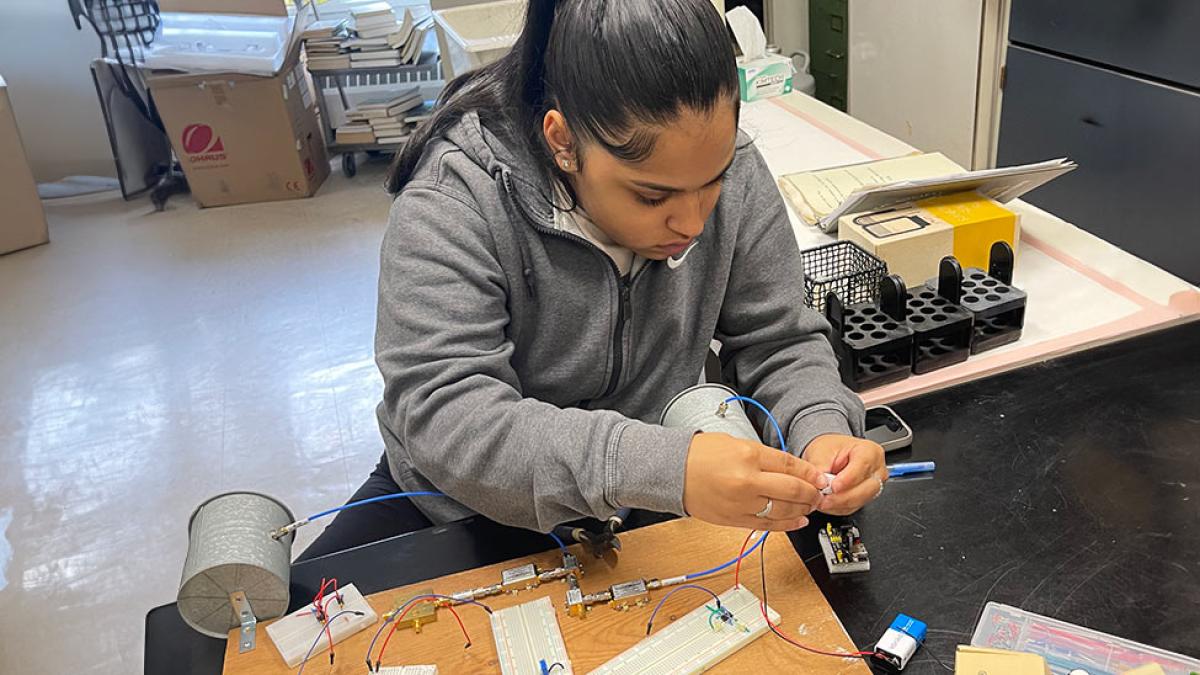
Did you know that the invention of the microwave was the result of a piece of chocolate melting in a scientist’s pocket during an experiment with radar? Did you know that the existence of black holes can be proven through mathematics?
These are the stories that sparked Clinical Assistant Professor of Mathematics Analee Miranda’s (PhD) passion for math as an undergraduate. She recalled transferring to UC Riverside to be closer to her family and being completely enthralled when a teaching assistant explained the correlation between black holes and math.
From there, she declared a major in mathematics with a specialization in quantum mechanics, a course of study she noted raised a few eyebrows. “People always assume you’re really smart if you’re a math major,” she laughed.
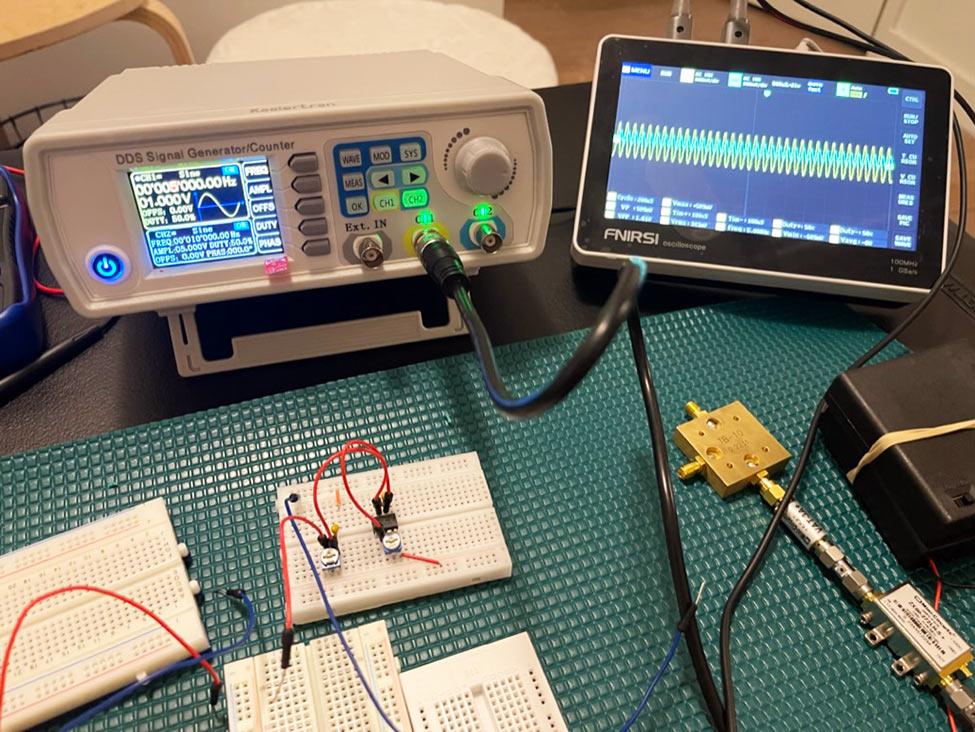
But there’s no doubt that Miranda is, in fact, “really smart.” She even has a patented invention. Working in an Air Force research lab, Miranda and an engineering colleague determined that radar can be used to detect biometric information, helping differentiate and identify humans. The now-patented process, which passes radar waves over a person standing on a metal block, uses the information provided by the phase of the radar wave (the distance between wave peaks) to discern information such as torso and neck height.
“My colleague and I are exactly the same height, but with very different proportions,” Miranda explained, “and you could clearly tell from the radar which one of us was which, because we could see from the wave scattering that her legs and neck were longer.”
Where mathematics, radar, and students converge
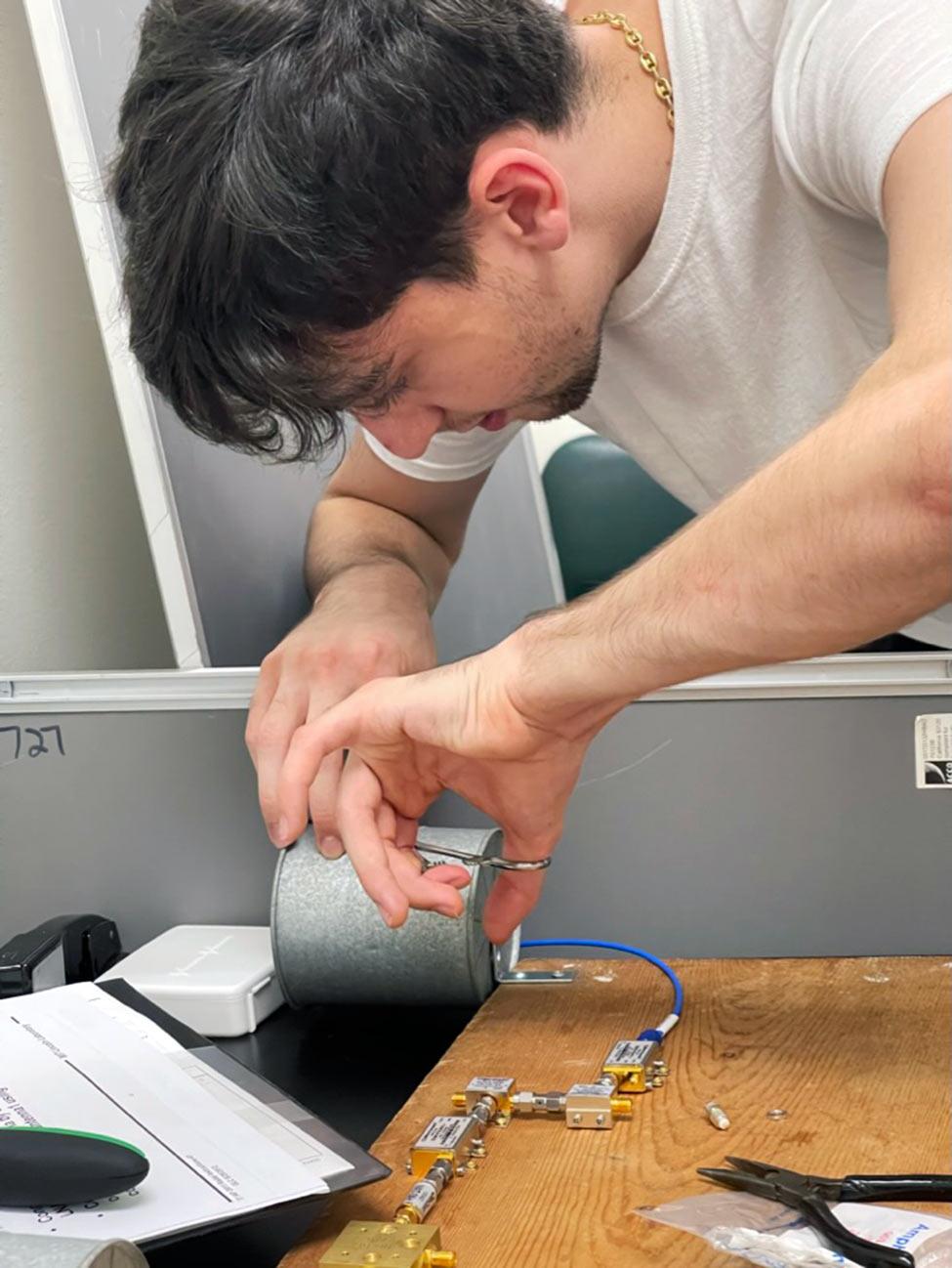
Since entering academia at Pace, Miranda has aimed to instill not only the importance but also the excitement of applied mathematics in her students. She noted that math is not often believed to be a “hands-on” discipline—but she knows differently. Students in her classes often engage with radar equipment and educational electrical circuits, putting their coursework into practice in real-life situations.
Miranda even involves students in a self-funded research project each summer, typically surrounding radar. Unfortunately, however, parts and equipment that were once inexpensive now cost hundreds of dollars each. Miranda’s father, who is an electrician by trade and electrical engineering enthusiast, has helped her find discounted parts. And this summer, Miranda reached out to Mini Circuits, a company that manufactures radio frequency and microwave components. When she mentioned that she was hoping to use the parts for educational purposes, Mini Circuits provided them for free.
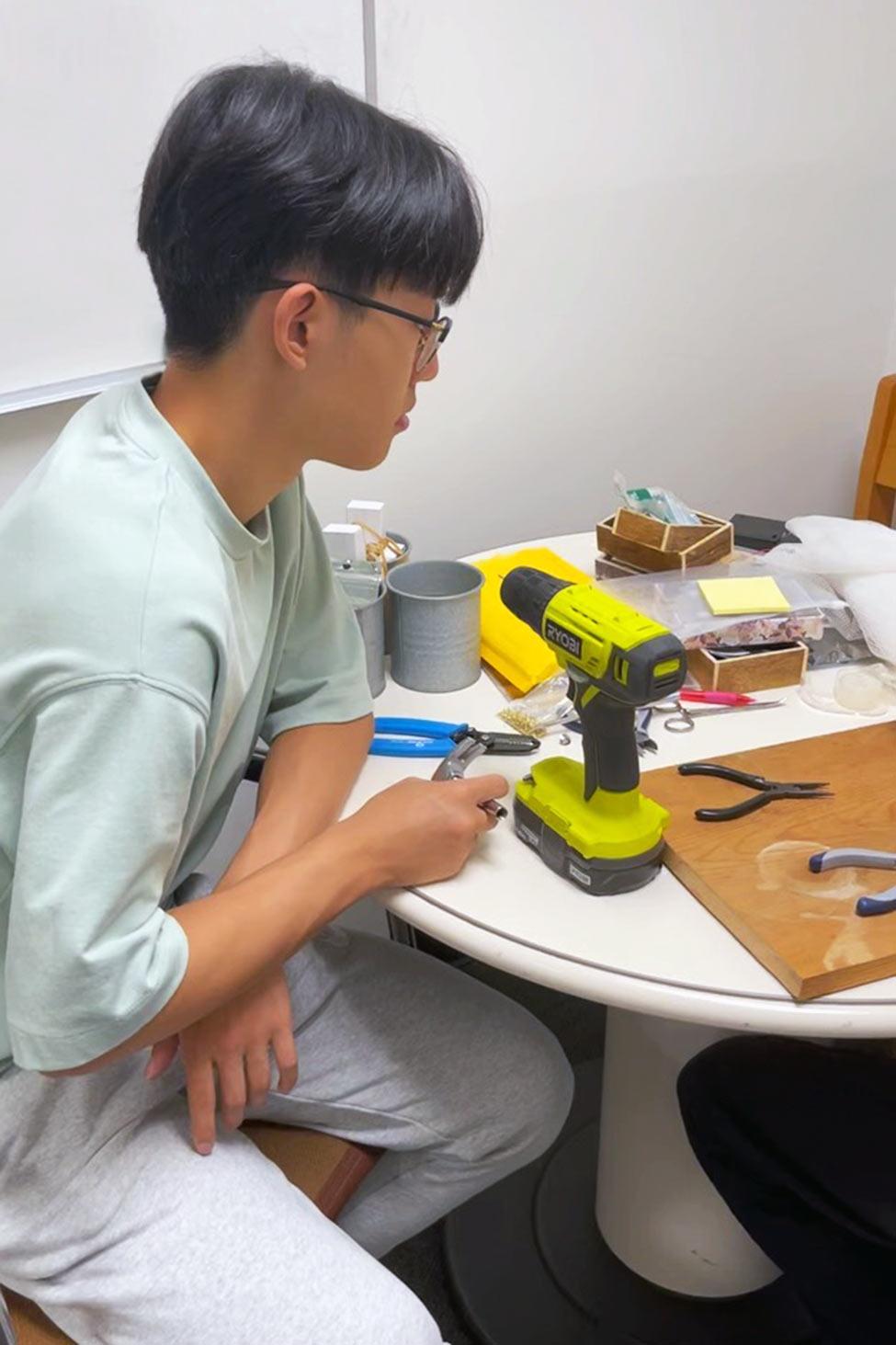
The project, which included two Pace students and three high school students, is based on an MIT-created project, in which students construct a small radar system that can sense range, Doppler, and Synthetic Aperture Radar (SAR), which is a form of radar that can create two- or three-dimensional reconstructions of images.
Put simply, Miranda and the students used the parts from Mini Circuits to test whether radar waves could identify the shape of different objects, a notion the group started testing using simple objects such as water bottles. The goal of the project is to pass radar waves through human body parts, a technology currently being explored by companies such as Google, to create devices that can detect the movement of a user’s hand without the user needing to touch the device.
“We are creating a sensing mechanism and using it to see through people’s bodies,” said Jayda-Lee Baez ’26, Mathematics, noting that the project combines trigonometric functions and calculus concepts, such as transformations, to study the physics of electricity. “I compare our radar to something like a human brain and eyes, because they behave in similar ways in that they can detect and analyze everything we see.”
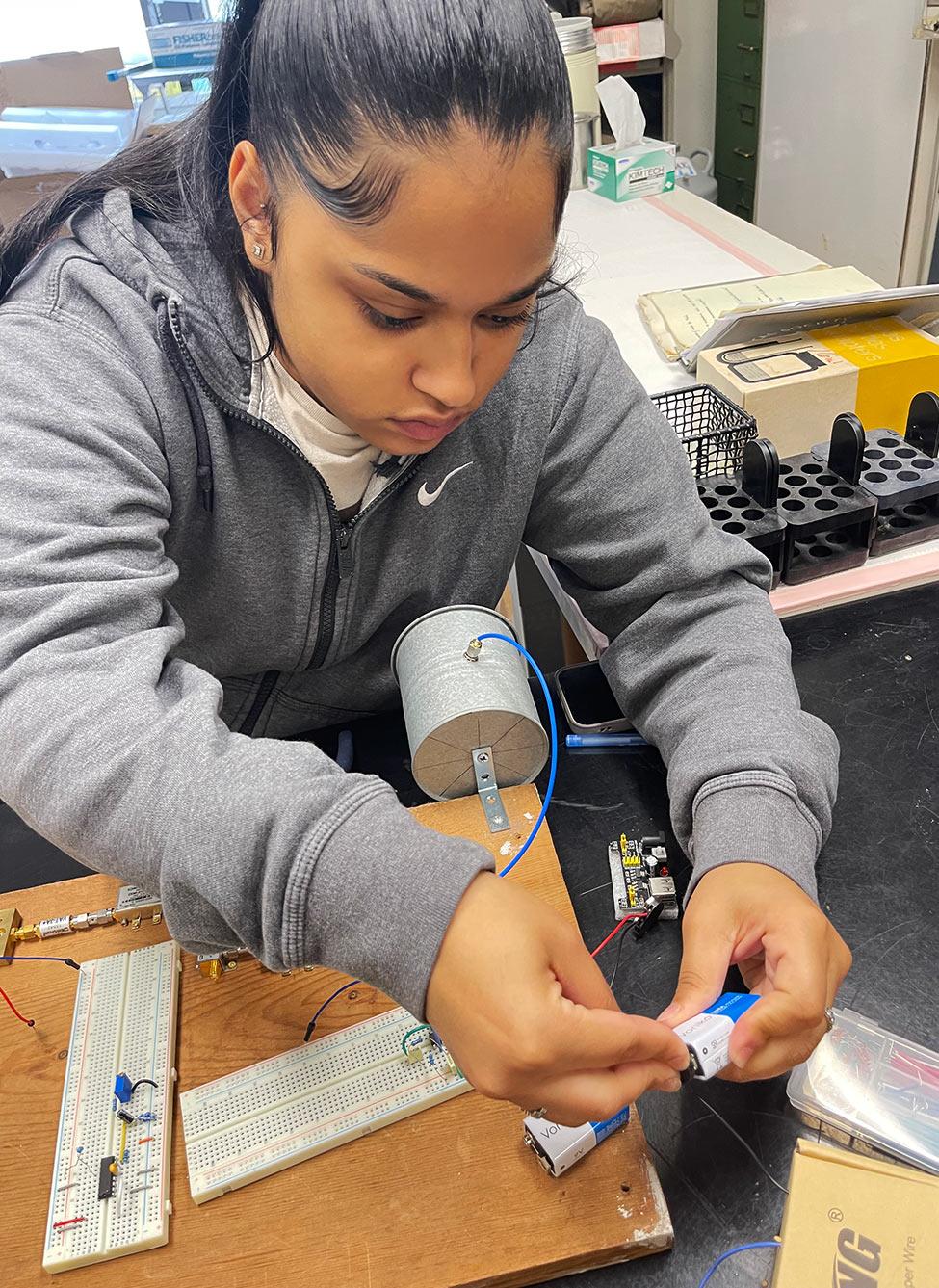
Baez and Kevin Dooley ’25, Business Economics, the other Pace student working on the project, both knew the opportunity to work on the radar project with Miranda was one they could not pass up.
“I thought to myself, ‘I don’t know anyone that’s built a radar before,’” said Dooley. “These are the things that make college so great. I knew I had to do it as a learning experience.”
While using different parts than suggested in the MIT model proved challenging, Miranda and the students were determined to see their project through to completion. Miranda, drawing on her experience and pedigree in the field, suggested shifting to radar designs that hobbyists often use. As a result, the students were able to see their radar come to life. Miranda plans to write up and publish this new design in the spring.
As evidenced by her involvement of students in her research, Miranda is truly passionate about immersing students in meaningful learning experiences, in and out of the classroom. Her background allows her to provide students with a unique perspective of how math is used in the real world, to deliver insight on careers in mathematics, and to connect students to competitive opportunities in the field.
Above all, Miranda hopes to convey to her students that math isn’t just calculus functions on a page. It’s—quite literally—all around us. And she believes experiencing and understanding math in the real world is not only important but can, in fact, even be fun.
Dyson Digital Digest: Fall 2023
This past summer, Clinical Assistant Professor of Art Derek Stroup, MFA, and Katie Romanyshyn ‘25, Film and Screen Studies, engaged in a faculty-student collaboration through the Amelia A. Gould Assistantship that expanded both of their creative boundaries and artistic possibilities in the most unexpected of ways.
On Wednesday, October 11, Political Science and Peace and Justice Studies students Ellis Clay ‘25, Antje Hipkins ’24, and Jasmine Cintron Soto ’25 delivered statements to the United Nations General Assembly First Committee, a forum focused on global disarmament and international security.
Through a new combined degree program, students can now earn a Bachelor of Science in biology from Pace in three years before completing a Master of Science in Ecology and Society at Costa Rica’s University for Peace (UPeace) in under two years.
Artist Mie Yim Dissolves The Boundary Between The Real And The Dreamlike In New Solo Exhibition At Pace University Art Gallery
New York, NY – Pace University Art Gallery is pleased to present Mother Octopus, a solo exhibition by painter Mie Yim. The exhibit opens with a reception on Tuesday, November 14 from 5:00 p.m.–7:00 p.m.

Exhibit Features Mural Made in Collaboration with Pace Students
New York, NY – Pace University Art Gallery is pleased to present Mother Octopus, a solo exhibition by painter Mie Yim. The exhibit opens with a reception on Tuesday, November 14 from 5:00 p.m.–7:00 p.m.
Via anthropomorphic abstraction, Yim says she is looking “under the hood” of the characters she depicts in her new paintings. In earlier work, she adroitly scrutinized the cuteness often associated with her female Asian identity using charming subjects, pastel colors, and soft focus. In contrast, Yim’s recent pieces have more amorphous figures, darker undercurrents, and a vibrating mass of marks. Yim says, “My approach to painting is highly intuitive and, over time, I have developed a visual language that combines contradictory elements: the sweet and the sour, the playful and the emotionally dark.” By breaking apart her cute characters with abstraction, Yim invites the viewer to deeply feel her subjects’ dynamic inner states rather than to gloss over their sweet facades.

In addition to the artist’s oil paintings and pastel drawings, the exhibit will feature a new mural Yim created in collaboration with students enrolled in Pace’s Introduction to Museum and Curatorial Studies course taught by Sarah Cunningham, the gallery director. The mural, from which the exhibit gets its name, references deep sea cephalopods that protectively brood over their clutch of eggs for up to 53 months—longer than any other known species—to ensure their offspring’s resiliency in a challenging environment. Yim draws inspiration for her lengthy painting practice and also for her work as a mentor to younger artists from the underwater creatures’ extended gestation. Cunningham, who also curated the show, says, “Working with an artist like Mie Yim is an incredible hands-on learning opportunity for our students. We are so grateful for Mie’s generosity, care, and enthusiasm for sharing her creative process.”

This exhibit, which remains on view through Saturday, January 20, 2024, is made possible by the New York State Council on the Arts with the support of the Office of the Governor and the New York State Legislature. The artist will also give a talk about her work on Tuesday, November 28 at 2:15 p.m. The gallery is located in Lower Manhattan at 41 Park Row. All of the gallery’s exhibits and events are free and open to the public. Regular gallery hours are Tuesday – Saturday from 12:30 p.m.–4:30 p.m. and by appointment. Please check gallery Instagram for university holiday closures.
About the Artist
Mie Yim (b. 1963, S. Korea) is a New York City based painter. Solo exhibitions include Villa Magdalena, San Sebastian, Spain, Olympia Gallery, New York, NY, the Durst foundation in New York, NY, Ground Floor Gallery, Brooklyn, NY, Lehmann Maupin, NY, Michael Steinberg, NY, Gallery in Arco, Turin, Italy. She had a solo exhibition at Brattleboro Museum in Brattleboro, Vermont in 2022. Numerous group exhibitions include Canada Gallery, the Drawing Center, Feature, Ise Cultural Foundation, Mitchell Algus Gallery, BRIC, Mark Borghi Gallery, all in New York. Other places such as Johnson County Community College, and the Weatherspoon Art Museum, Marcia Wood Gallery, Atlanta, The Arts Center at Western Conn. University. She represented a solo booth at NADA 2021 with Olympia and 3-person presentation at Untitled 2021 with Monica King Projects. She is a recipient of Pollock Krasner Foundation Grant in 2020, The Lillian Orlowsky and William Freed Grant 2018, The New York Foundation of the Arts Painting Fellowship in 2021 and 2015 and Artist in the Market Place, Bronx Museum. She has a BFA in Painting from Philadelphia College of Art as well as a year abroad at Tyler School of Art in Rome, Italy. She will have solo exhibition at Olympia Gallery, Simone Subal Gallery in New York, Inna Art Space in Hangzhou, China in 2023.
About the Pace University Art Gallery
Founded with the conviction that art is integral to society, the Pace University Art Gallery is a creative laboratory and exhibition space that supports innovation and exploration for both artists and viewers. Open to students, staff, and faculty from across the Pace campuses and, equally, to the Lower Manhattan community and visitors from around the world, the Art Gallery encourages personal investigation and critical dialogue via thought-provoking contemporary art exhibits and public programming. Enhancing the Art Department's Bachelor of Arts and Bachelor of Fine Arts programs, the Art Gallery offers students real-world opportunities to exhibit their own art and to work directly with professional artists to install and promote exhibitions. All exhibits and events are free and open to the public.
About Dyson College of Arts and Sciences
Pace University’s liberal arts college, Dyson College, offers more than 50 programs, spanning the arts and humanities, natural sciences, social sciences, and pre-professional programs (including pre-medicine, pre-veterinary, and pre-law), as well as many courses that fulfill core curriculum requirements. The College offers access to numerous opportunities for internships, cooperative education and other hands-on learning experiences that complement in-class learning in preparing graduates for career and graduate/professional education choices.
About Pace University
Since 1906, Pace University has been transforming the lives of its diverse students—academically, professionally, and socioeconomically. With campuses in New York City and Westchester County, Pace offers bachelor, master, and doctoral degree programs to 13,600 students in its College of Health Professions, Dyson College of Arts and Sciences, Elisabeth Haub School of Law, Lubin School of Business, Sands College of Performing Arts, School of Education, and Seidenberg School of Computer Science and Information Systems.
The Amelia A. Gould Assistantship: Providing Faculty and Students with a Canvas for Creative Expression
This past summer, Clinical Assistant Professor of Art Derek Stroup, MFA, and Katie Romanyshyn ‘25, Film and Screen Studies, engaged in a faculty-student collaboration through the Amelia A. Gould Assistantship that expanded both of their creative boundaries and artistic possibilities in the most unexpected of ways.
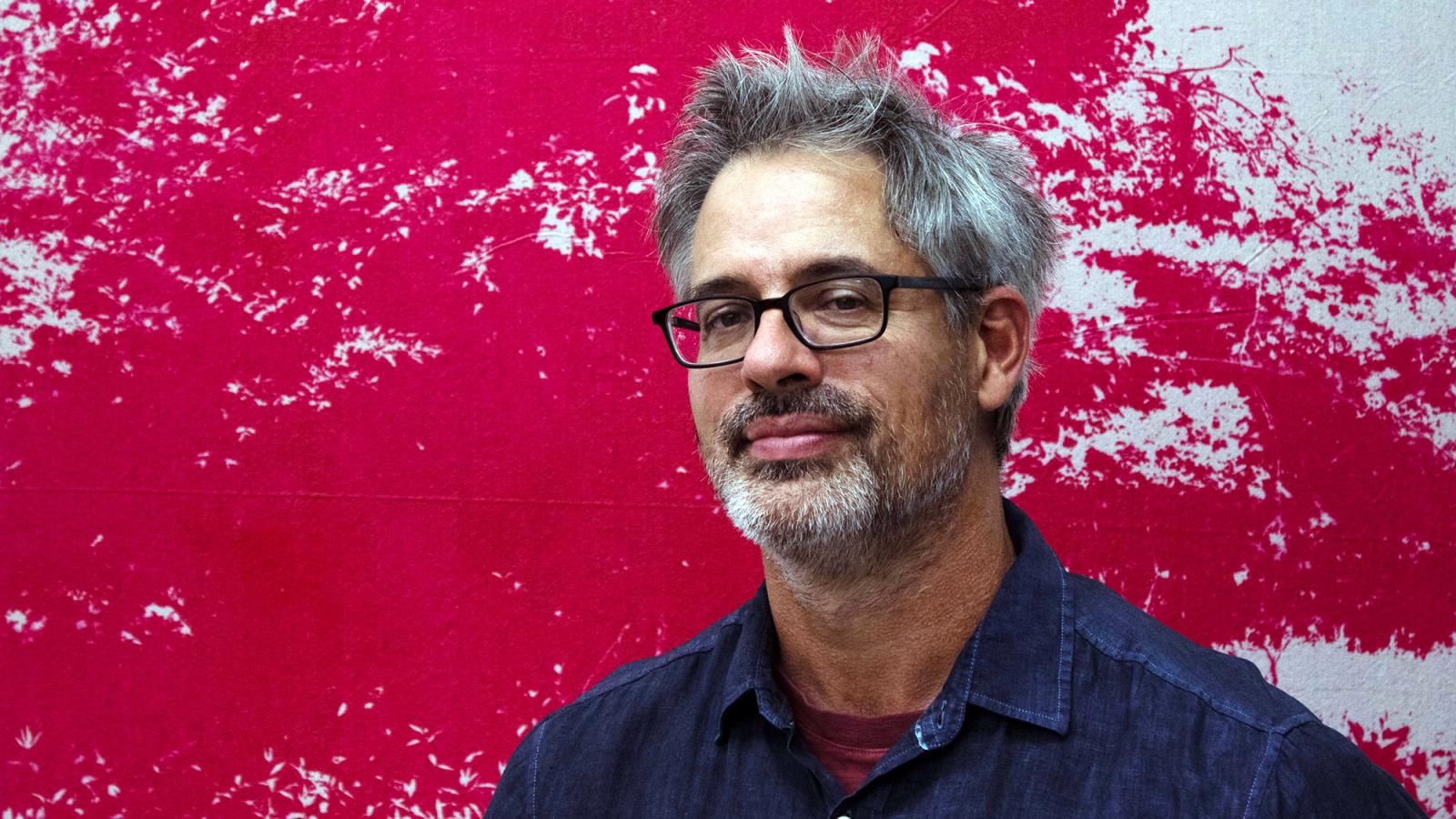
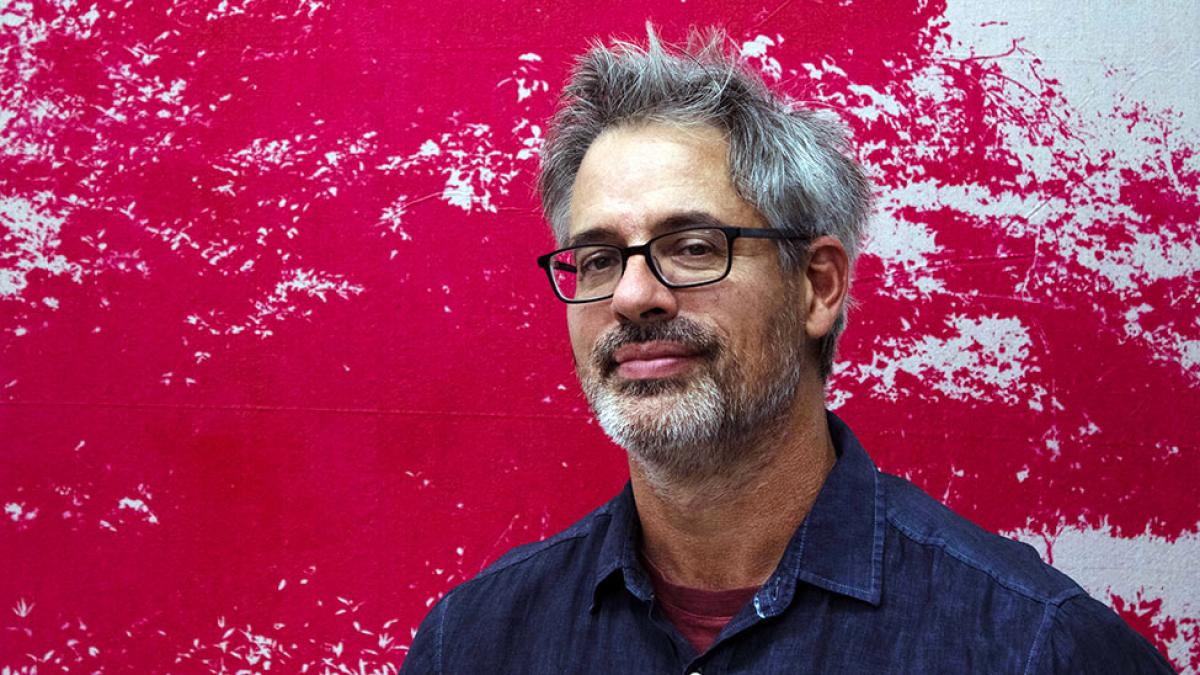
This past summer 2023, Clinical Assistant Professor of Art Derek Stroup, MFA, and Katie Romanyshyn ‘25, Film and Screen Studies, engaged in a faculty-student collaboration that expanded both of their creative boundaries and artistic possibilities in the most unexpected of ways.
Their work together was made possible by the Amelia A. Gould Undergraduate Research Assistantship, offered through the Provost Office’s Center for Undergraduate Research Experiences Summer Undergraduate Research (CURE) program. This exciting new funding opportunity at Pace supports projects in the creative arts, pairing faculty who are working professionals in their fields with an undergraduate student.
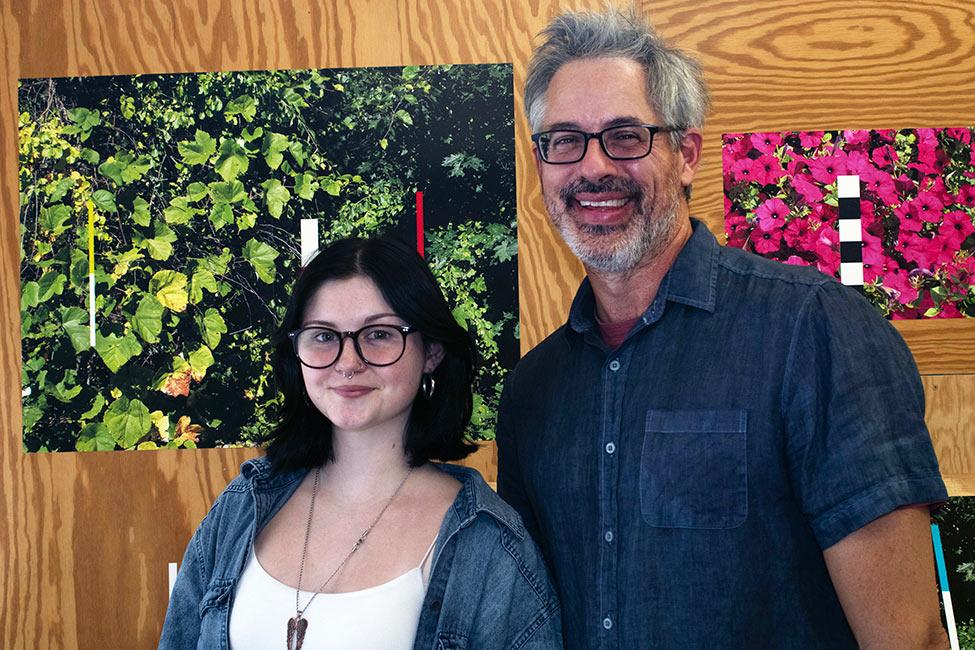
Stroup, an artist who also coordinates a partnership Pace has with the International Center for Photography, where students take innovative, professional studio courses that complement the curriculum offered on the New York City campus, joined forces with Romanyshyn, a student in his digital photography class. Together, they created a series of large-scale photographic screen prints on canvas, a continuation of Stroup’s Radiant Fields series.
The faculty-student team began their work together with a necessary two-person endeavor, the crucial first step of stretching the canvas in Stroup’s studio in Brooklyn. The intricate process that followed included coating large pieces of canvas with a light sensitive photo emulsion, covering them, once dry, with a large negative, and then exposing them to light. After a final water rinse, the resulting images were something between a painting, screen-printed textile, and photography.
Said Romanyshyn, “One of the main things I learned was how to work for and with a fellow artist since artwork has always been a solitary endeavor for me. Professor Stroup has so much knowledge he’s willing to share and made me feel comfortable and excited to try new things.”
Over the next couple of weeks, active steps interchanged with the art of waiting, until the piece was complete, requiring the kind of discipline, skill, and patience artists know well.
To elevate the mundane
Unlike the vast, monumental spaces captured by American landscape photographer Ansel Adams, Stroup’s images in his Radiant Fields series are that of weedy environments—that is, places where nature runs wild, such as overgrown fields and cracked sidewalks—and in which plants such as dandelions inherently recognize how to use the sun’s rays to thrive. With the format of canvas print, as opposed to something digital, Stroup is thus making solar radiation tangible, tactile, and physical with his art.

In showcasing these “radiation landscapes,” Stroup is also highlighting an aspect of nature that is not traditionally regarded as existing for humanity’s benefit, but rather pursuing life in its own inconspicuous way, while also being part of an ecosystem that adapts and changes with a beautiful complexity that is often beyond human awareness.
And it is this “ordinariness” that really interests Stroup.
He said, “I am much more in this category of artists who try to work in the ordinary world and, much more, the kind who is trying to reawaken myself, and to re-sensitize myself, and hopefully viewers, to the possibilities of regular things.”
Experiential learning
Back on campus in the Art department, Romanyshyn also worked with Stroup to rebuild his professional website, involving the very detailed task of documenting his prolific works, which go beyond photography and include posters, books, and other publications. Romanyshyn mastered WordPress—the industry standard for web content management—in the process.
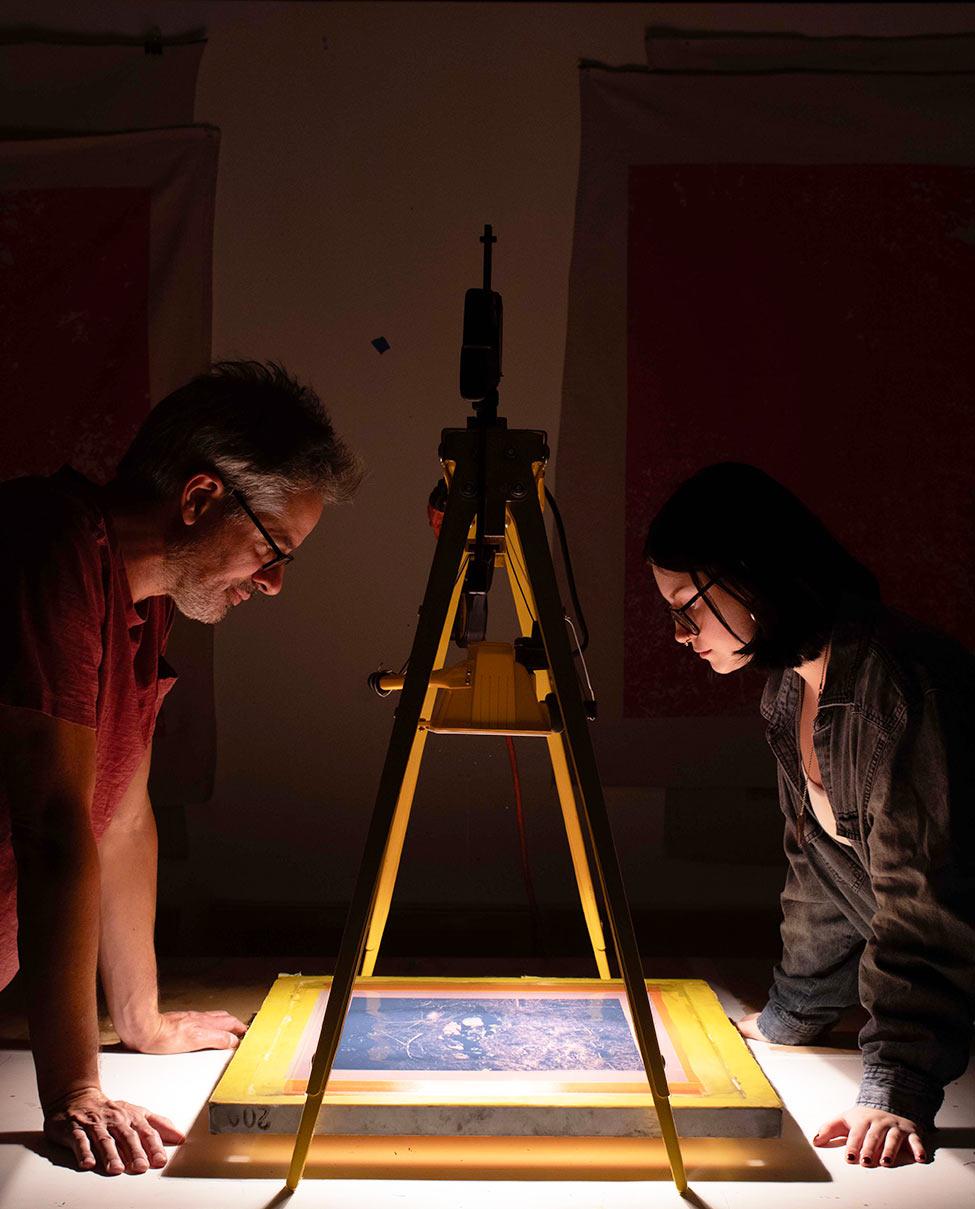
As a faculty mentor, Stroup also understands the importance of getting out of the studio and into the world, echoing the theme of experiential learning at Dyson that goes beyond the classroom. With this in mind, they embarked on an early morning on-location photo session at Jacob Riis Beach.
Earlier, Romanyshyn had read the unpublished manuscript for a new book of fiction by Stroup, and she encouraged him to finish it. Together, they decided to create a series of photographs for the text. Romanyshyn found a model, researched visual ideas for the photographs, and worked on all aspects of this on-location production at Jacob Riis.
On the importance of funding artists
For too long, and as exemplified in its extreme form by the phrase “starving artists,” artists have often sacrificed material well-being to bring their creative talents to the world.
Stroup, however, stresses the importance of not accepting this as the norm, and contends that artwork qualifies as real work. He notes that he could not have completed his recent projects if it were not for Romanyshyn and the financial support of the Amelia A. Gould Foundation, which provided a generous stipend for Romanyshyn over the course of the summer.

He said, “I hadn't done anything like this before in my career, and it was a really, really positive experience for everybody. And I could not have done that without the grant.”
An exhibition of equity
The mission of the assistantship, which is to both provide faculty with research support while enhancing opportunities for student-faculty collaboration in the creative arts, had also been wonderfully fulfilled in the case of Stroup and Romanyshyn.

Stroup is grateful to Romanyshyn for making his studio practice more visible to the world and in a better way, and Romanyshyn, a Film and Screen Studies major whose interest lies in digital storytelling, received professional training in various documentary practices while also working in an actual artist studio.
In addition to the artistic skills she developed as part of this work, Romanyshyn, who stepped out of her comfort zone with a move from a small New Jersey town to New York City to attend Pace, learned something less tangible but equally important: to put herself out there and to not fear rejection, which she contends resulted in her personal growth.
This did not go unnoticed by Stroup.
He commended her for her drive and bravery when she first asked him to be mentored as part of this assistantship, which in turn motivated his desire to make this collaboration come to fruition. And so, both faculty member and student worked to complete the application process together, and the rest is artistic history.
Said Romanyshyn, “This whole experience was very, very meaningful for me. Professor Stroup’s belief in me as a student and artist is probably the most meaningful part of it and his admiration for my commitment and work ethic was the cherry on top.”
Stroup’s prints on canvas completed with Romanyshyn will be featured in his solo exhibition, “Radiant Fields” at KPNZ gallery in Walton, New York in 2024.
All photos accompanying this article by Katie Romanyshyn.
Dyson Digital Digest: Fall 2023
On Wednesday, October 11, Political Science and Peace and Justice Studies students Ellis Clay ‘25, Antje Hipkins ’24, and Jasmine Cintron Soto ’25 delivered statements to the United Nations General Assembly First Committee, a forum focused on global disarmament and international security.
Through a new combined degree program, students can now earn a Bachelor of Science in biology from Pace in three years before completing a Master of Science in Ecology and Society at Costa Rica’s University for Peace (UPeace) in under two years.
Jamaican-born alumna and physician builds on her foundation as a Dyson student by sharing her medical knowledge and instilling confidence as a children’s book author.
Believing in You: Daniel Reyes '24
When asked about his Haub Law experience so far, the first words Daniel Reyes mentions are "support system." Daniel grew up with a close-knit family who looked to one another for support, so seeking out the same environment for his educational pursuits was paramount.
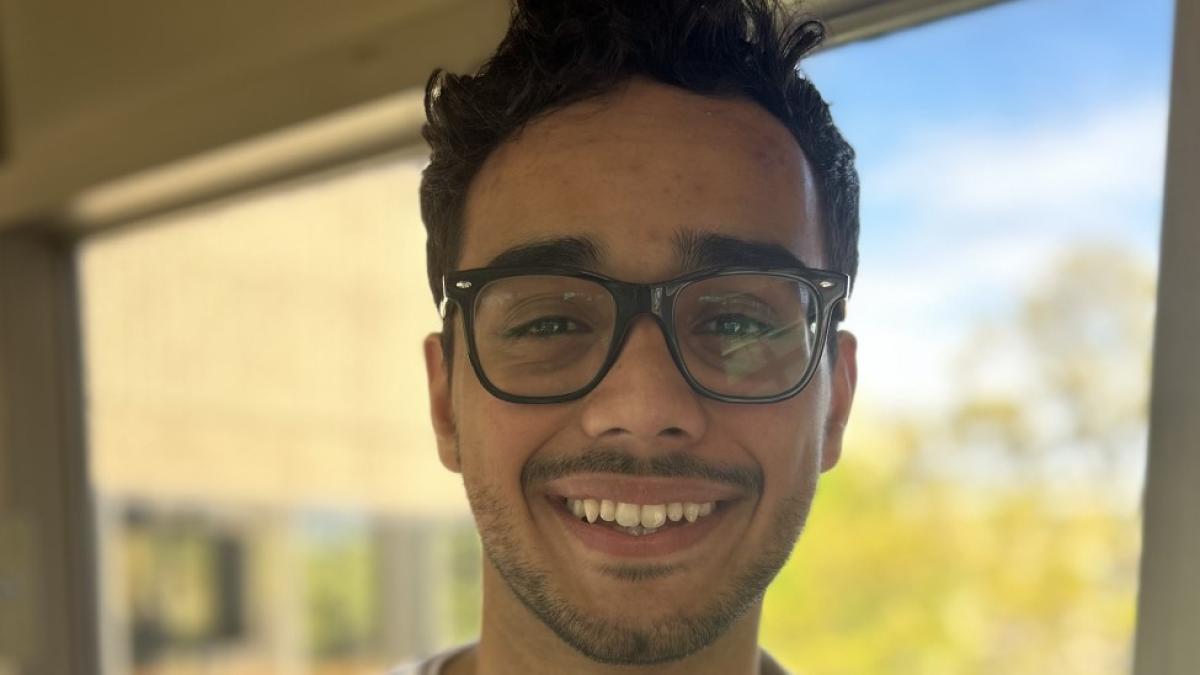
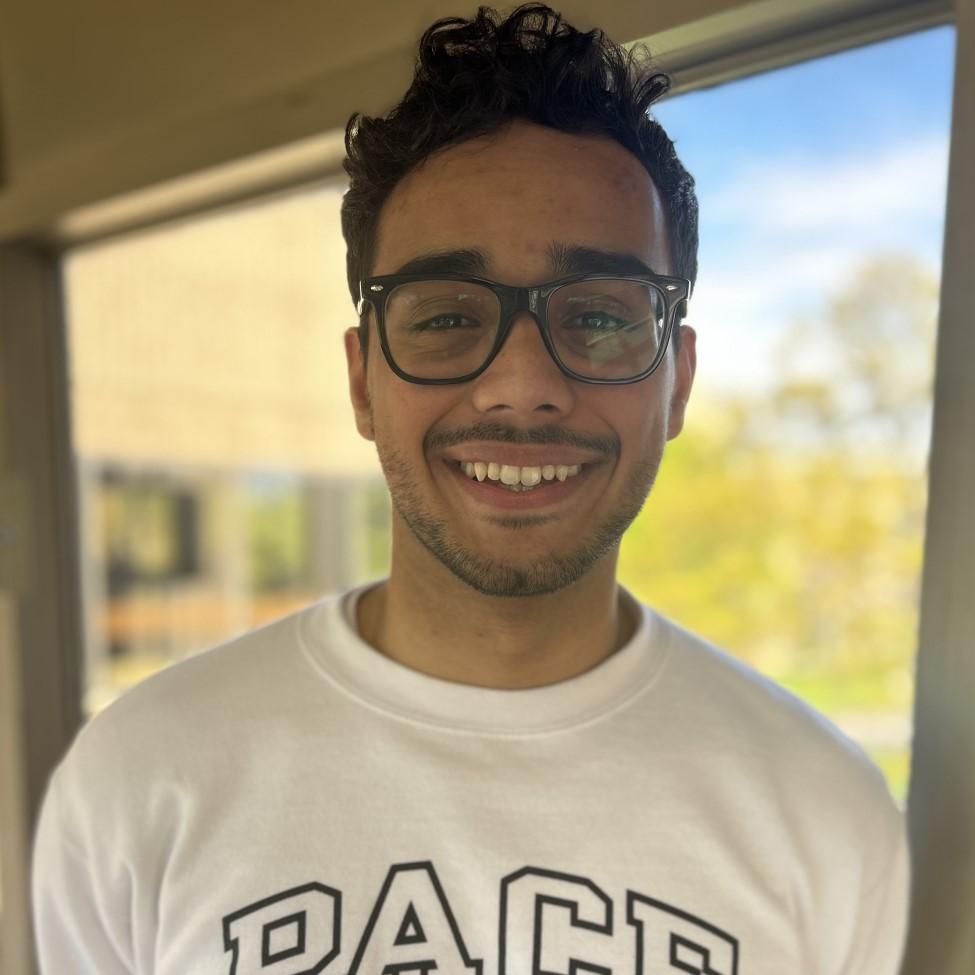
When asked about his Haub Law experience so far, the first words Daniel Reyes mentions are "support system." Daniel grew up with a close-knit family who looked to one another for support, so seeking out the same environment for his educational pursuits was paramount. “I am a first-generation college graduate and law student; my parents always preached the importance of education to my brother and me and the importance of having people you can depend on. My brother recently became the first engineer in the family, and I am now working towards becoming the first lawyer in the family. Haub Law showed immense faith in my potential and had a very family-oriented feel to its campus.”
For Daniel, his involvement with the Latin American Law Students Association (LALSA) has been where he found his support system. “The members of LALSA have been mentors for me and have truly guided me throughout my first two years at Haub Law. I am truly grateful for each and every one of them and it was so rewarding to serve as a mentor for the incoming 1L class in return.” Daniel is also a member of the First Generation Law Students Society, which he notes has connected him with so many others who share a similar background and upbringing as him.
As a 2L, Daniel participated in Haub Law’s competitive Federal Judicial Honors Program (FJHP), where he worked in the federal courts for the Southern District of New York for twelve hours a week. “The experience was both challenging and rewarding. Having the opportunity to have your writing and research skills put to the test at a judge’s standard is intimidating, but a very valuable learning experience. The practical and hands on knowledge I gained is amazing.”
While law school wasn’t always at the forefront of Daniel’s mind, today, he can’t imagine another educational pursuit. “For most of my life, I wanted to become a police officer. However, I began studying accounting during undergrad and discovered a new passion. After graduating from Rutgers in 2020, I decided that going to law school would be the best way to merge my two interests in criminal justice and accounting. I try to keep an open mind and think outside of the box. Attending Haub Law has solidified for me that I made the right choice.”
Although Daniel still has another year left of law school, he hopes to work in private practice one day. “Right now, I am interested in corporate, banking, securities, and tax law. However, each new experience I have at Haub Law makes me realize how vast the profession of law is and that there truly is no limit to what you can do with your degree.”
When Daniel isn’t studying, he enjoys playing chess, soccer, and snowboarding. He is also a huge New York Jets fan. His advice for a successful law school experience: “The first step to success is believing in yourself! Once you truly have faith in your capabilities, the only person that can stop you is YOU.”
